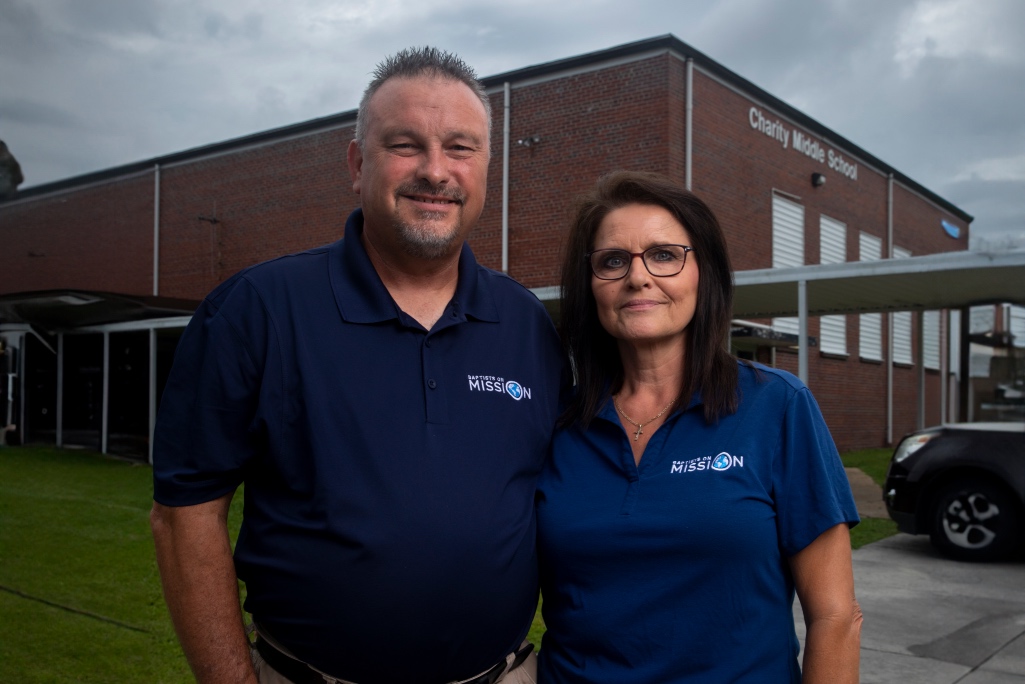
What does it take to reach the next generation with the gospel?
Shane Pruitt has been asking that question for years. As the national next-gen director for the North American Mission Board, he’s not just talking about Gen Z and Gen Alpha, he’s talking with them.
Through speaking, writing and hosting the GenSend Podcast, Pruitt is on the front lines of one of the most urgent challenges facing the church today — reaching and discipling young people in a culture that’s constantly shifting. He will deliver the convention sermon at this year’s N.C. Baptist annual meeting.
In this special Q&A, curated from recent episodes of the GenSend Podcast, Pruitt shares practical insights about the next generation and how the gospel still speaks into their world. His responses have been lightly edited for length and clarity.
You speak at a number of camps and retreats, especially over the summer. What were some things you saw happen this summer?
We’ve been praying that Gen Z and the Alpha Generation would be the revival generation. We’re just continuing to see God move. I was at multiple camps this summer. I got to see a lot of young people realize they are a sinner in need of a Savior, repent of their sin and place their faith in Jesus Christ as Lord and Savior. And then also a lot of students surrendered to a calling of ministry leadership in their life. Others realized that they’re called to live on mission, to know Jesus and make Jesus known. Others who maybe know Jesus but have strayed away or dove into some vices and addiction to sin came back to the Lord to walk in victory and freedom. God is doing incredible things.
What are some cornerstone principles that are effective in next-gen ministry and in all different kinds of contexts?
The world is changing so fast, and culture is changing so fast, that a lot of times as next-gen leaders, reaching teenagers, college students and young adults can feel so overwhelming. Sometimes we can put pressure on ourselves and say, “I can’t keep up. I don’t know what to do.” We always approach it like missionaries, and just like missionaries do, they study cultures, they study thoughts, they study worldviews, they study languages and people groups, and we must continue to do that.
But I think we always anchor to the things that have been true for 2,000 years as well. Take hope that if we’ve been bought by the blood of Jesus, we have the Holy Spirit. So, No. 1, be led by the Spirit. No. 2, preach the Word. We have to understand who we’re talking to and who the audience is, but the main thing is we still want to be text-driven and preach the Word. Stick to the Word of God. It’s always relevant. It’s not an old book, it’s a living book. The third thing is to share the gospel. That is the hope of the world. The same gospel that has worked for 2,000 years still works today. Fourth, as the church, we have to stay on mission. We can’t get sidetracked and come into these conversations with our politics or our opinions or how we were raised, we come in with the gospel of Jesus Christ.
Gen Alpha (generally those born from 2010-2025) is the first generation that was fully born into a digital world, and they are used to learning online. What does this mean for the church when it comes to discipleship, evangelism and training this generation? How does this shape how they are going to interact with church?
This is completely a digital generation. That comes second nature to them. I would just say use that for the glory of God. When we know over half the world is on social media, help them understand what it means to be a digital missionary, a digital evangelist. Use those platforms that they know inside and out. I would say mobilize them as a missionary force online.
Where we’re going to have to disciple this generation is how to interact with people in person. They’re extremely comfortable with their friends online, but the moment they see that person in the wild, they do not know what to do. How we can really invest in a generation is to help them know how to do in-person ministry well.
What are some ways you are seeing artificial intelligence (AI) influencing the way young people search for truth, identity and belonging?
One thing we have to remind young people with ChatGPT is that we never want to call it “Pastor Chat” or “Counselor Chat.” We’ve got to encourage students and help them understand where they can go for real, actual help. We’ve got to speak into that. Then in some other areas, I don’t know if AI is really helpful when it comes to people who are struggling with their identity. Which I feel like on some level, every young person struggles with their identity.
One thing you can do on AI, instead of embracing who God created you to be, embracing the look that God gave you, embracing the sex and gender that God gave you, instead of embracing that, online you can be whoever you want to be. So, in a way, it feels that identity that the Creator gave you is not enough or is wrong. On an online AI avatar, you can be whoever you want to be. So I would say, you can’t find identity there. It has to be in the Lord, and so we’ve got to really help young people understand that.
(EDITOR’S NOTE — This article originally appeared in the November/December 2025 edition of the Biblical Recorder magazine. Shane Pruitt serves as the national next-gen director with the North American Mission Board. He will deliver the convention sermon at this year’s N.C. Baptist annual meeting on Tuesday, Nov. 11, at 3 p.m. Hear more from Pruitt from his recent appearance on the N.C. Baptist podcast by visiting ncbaptist.org/podcast)


